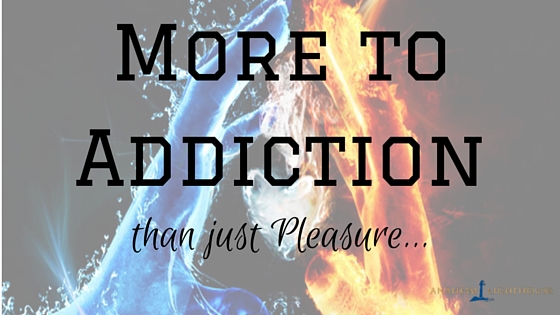More to Addiction than just Pleasure
written by, Ivy Chase
The rush from a hit of cocaine or methamphetamine causing the release of instant dopamine; an intense high that makes you want to repeat it over and over again- this has been our explanation for the cause of drug abuse for so many years. But what if there is more to addiction than just pleasure? What is it that drives certain people toward addictive substances and behaviors repeatedly, even when their lives are collapsing as a result?
Science has taught us that the risk factors for addiction are part nature, part nurture. But research has also told us one of the biggest risk factors is social and economic disconnection. Recovery from addiction almost always, no matter which method you choose, involves healthy socialization, whereas before there was a lack there of. This is the heart of addiction for a large percentage of addicts.
Most addicts seeking recovery have unfortunately experienced a dysfunctional childhood, teaching them not to fully trust caregivers and other loved ones. They were neglected, abandoned, abused or otherwise traumatized as children, and the lesson they learned - don't trust people - has caused them, as adults, to feel ill-at-ease in the human race.
These individuals are not looking to feel good, they are looking to feel less. They don't drink, get high, gamble, act out sexually, or whatever because they want to experience pleasure, they do it because they want to escape their feelings. The neuro-chemical intensity wrought by addictive substances and behaviors is what helps them do this.
On the brighter side, addicts who were not blessed with secure, healthy attachment in childhood (and who therefore struggle with healthy connection in adulthood) can learn to securely attach. Methods such as therapy, support groups and other healing relationships are most common. Each pathway for emotional discomfort (and therefore out of addiction) involves healthy intimacy with other people. In other words, the long-term antidote for addiction is not willful sobriety, but is CONNECTION.
This truly makes a person question our methods here in the United States with punishment for drug abuse related crime and offenders. Is isolating and incarcerating an effective solution to the addiction problem? Portugal has focused on the opposite, where illicit drugs were decriminalized in
Since then, instead of spending money on arrests, judicial proceedings and incarceration, the country focuses its resources on treatment programs, social support and reintegration into society. Unsurprisingly, problematic drug use in Portugal is down since 2001, as well as drug related deaths and incarceration rates.
Programs such as the one at Anaheim Lighthouse are "court-friendly" and open and affordable to many addicts seeking treatment who are dealing with legal issues and financial loss. We provide a homelike atmosphere and a safe place for addicts to connect with their peers and build new relationships as well as repair the broken ones from the past. We believe there is hope in everyone's situation as long as they are still alive.
If you or someone you care about is struggling with addiction please call us today, we can help 877-959-5909
Resources:














